第3章
Nature employs the miracle so very sparingly that most of us gothrough life without seeing one, and some of us contract such aprejudice against miracles that when they are performed for us wesuspect a trick.When I suffered from this suspicion in "TheRight of Way" I was the more vexed because I felt that I was inthe hands of a connoisseur of character who had no need ofmiracles.
I have liked Mr. Parker's treatment of French-Canadian life, asfar as I have known it; and in this novel it is one of theprincipal pleasures for me.He may not have his habitant, hisseigneur or his cure down cold, but he makes me believe that hehas, and I can ask no more than that of him.In like manner, hemakes the ambient, physical as well as social, sensible aroundme:the cold rivers, the hard, clear skies, the snowy woods andfields, the little frozen villages of Canada.In this book,which is historical of the present rather than the past, he givesone a realizing sense of the Canadians, not only in the countrybut in the city, at least so far as they affect each otherpsychologically in society, and makes one feel their interestingtemperamental difference from Americans.His Montrealers arestill Englishmen in their strenuous individuality; but in thefrank expression of character, of eccentricity, Charley Steele islike a type of lawyer in our West, of an epoch when people werenot yet content to witness ideals of themselves, but when theywished to be their poetry rather than to read it.In his secondlife he has the charm for the imagination that a disembodiedspirit might have, if it could be made known to us in thecircumstances of another world.He has, indeed, made almost asclean a break with his past as if he had really been drowned inthe river.When, after the term of oblivion, in which he knowsnothing of his past self, he is restored to his identity by afamous surgeon too opportunely out of Paris, on a visit to hisbrother, the cure, the problem is how he shall expiate the errorsof his past, work out his redemption in his new life; and theauthor solves it for him by appointing him to a life of unselfishlabor, illumined by actions of positive beneficence.It issomething like the solution which Goethe imagines for Faust, andperhaps no other is imaginable.In contriving it, Mr. Parkerindulges the weaker brethren with an abundance of accident and aluxury of catastrophe, which the reader interested in thepsychology of the story may take as little account of as helikes.Without so much of them he might have made asculpturesque romance as clearly and nobly definite as "TheScarlet Letter"; with them he has made a most picturesqueromantic novel.His work, as I began by saying, or hinting, isthe work of a poet, in conception, and I wish that in somedetails of diction it were as elect as the author's verse is.
But one must not expect everything; and in what it is, "The Rightof Way" satisfies a reasonable demand on the side of literature,while it more than meets a reasonable expectation on the side ofpsychological interest.Distinctly it marks an epoch incontemporary noveling, and mounts far above the average besttoward the day of better things which I hope it is not rash toimage dawning.